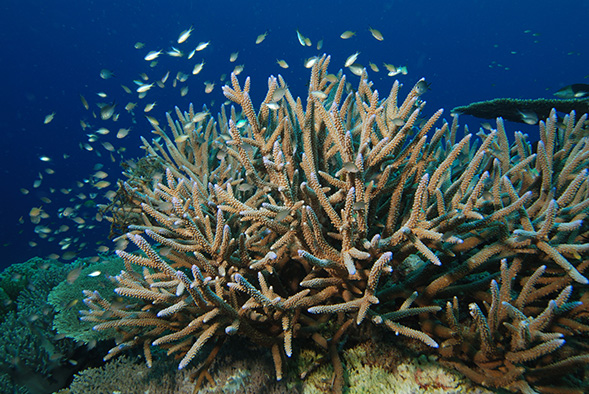Getting Coral Polyps to Settle Down
SDSU biology graduate student Amanda Alker was awarded the NSF Graduate Research Fellowship to study coral metamorphosis.

Alker works in the lab of SDSU biologist Nick Shikuma, whose research previously established that a common marine bacterium, Pseudoalteromonas luteoviolacea, has a virus-like “tail” that instigates the metamorphosis of tubeworms from their juvenile polyp stage into their mature adult state. Shikuma suspects other organisms like barnacles and sea urchins might follow a similar pattern.
Alker’s research focuses on whether corals might also metamorphose in response to certain bacteria’s virus-like tails. This is important because the presence of these bacteria might play a key role in determining whether a coral polyp settles down. Get enough corals settling together and you have the makings of a reef.
Alker's coral of choice is Acropora cervicornis, prevalent in Caribbean coral reefs, but also endangered by disease and climate change-related water warming. It’s the target of extensive restoration efforts, and knowing how to trigger its metamorphosis could play a key role in its restoration.
“If I can elucidate this mechanism, we could potentially increase coral settlement and recruitment in coral reef ecosystems, or in coral restoration efforts,” Alker said.
She is one of 2,000 NSF Graduate Research Fellows selected from a candidate pool of more than 13,000. The award provides three years of financial support and comes with a $34,000 annual stipend, as well as additional funding for SDSU to cover education costs.
Shikuma’s lab is part of SDSU’s Viral Information Institute, a nationally recognized leader in the field viral ecology and the genetic makeup of viruses.



